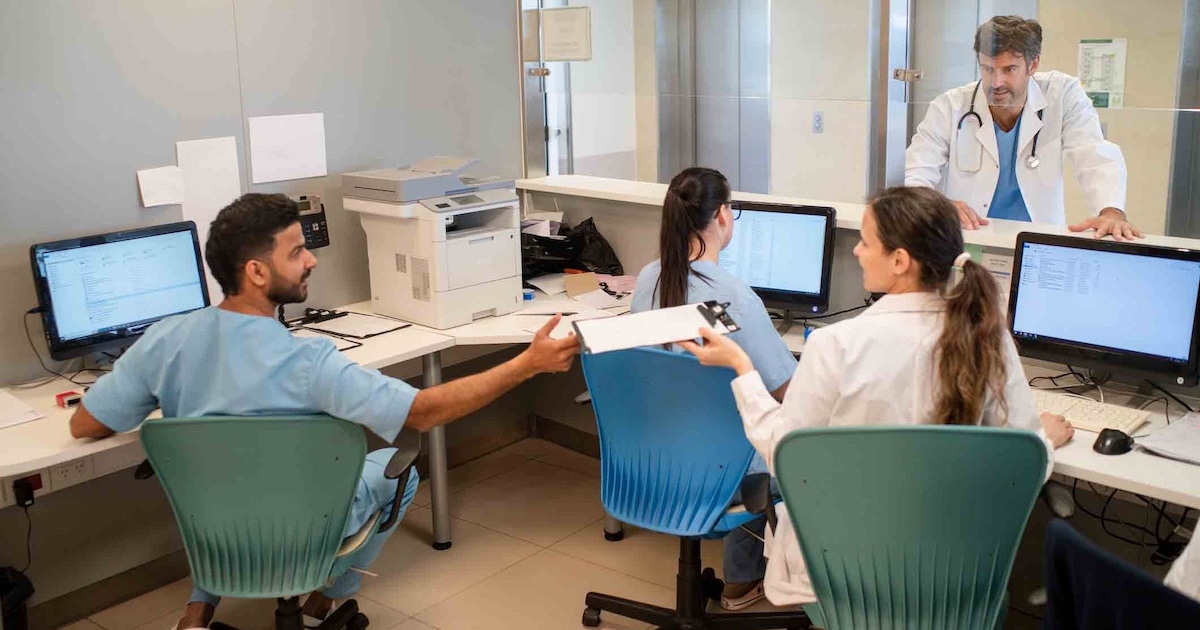Until recently, physicians at the Mobile, Ala.-based Infirmary Health system would have to find a computer station in the hospital to type in notes and orders – or they'd jot them down on paper.
Now, they need only speak into their smartphones.
Administrators at the four-hospital system have integrated speech recognition technology from Nuance into the system's Epic EMR platform to give clinicians a quick avenue for progress notes and one-off orders. Billy "Eddy" Stephens, the health system's vice president and CIO, said roughly 350 doctors now use this feature on their mobile devices.
"That was something they were accustomed to doing," he told mHealth News. "So it was easy to get them to take this one more step."
With most doctors carrying around smartphones nowadays, health systems are looking at simple tasks that can be adapted to mobile devices without affecting – and in many cases improving – the clinical workflow. At Infimary Health, Stephens said the integration of the Nuance Speech Anywhere platform (through Haiku and Canto apps) isn't forcing doctors to do anything more than what they already do – which is, basically, talking into a phone.
[See also: mHealth masters: Nick van Terheyden on promise of voice recognition]
But it does make things a whole lot easier. They can enter their notes at any time, while walking through the hospital or even while meeting with a patient.
"The patient actually being able to hear the information going into the medical record is a new dynamic," Jonathon Dreyer, Nuance's cloud and mobile solutions marketing director, said. "It's all about getting that information into the system in real time so that it's available for the next person. They can't wait for the doctor to walk down the hall, find a desktop, log in and type in their notes."
The technology is "everywhere now," Stephens said. "I talk to my truck to make phone calls and send text messages. It's a simple communication tool, and it's probably one of the least intrusive technologies that we've ever implemented."
As a result, he said, the health system has all but eliminated paper progress notes and one-off orders – he wonders if the next phase of the technology will allow them to process order sets in this fashion. And the EMR, he said, is more complete and dynamic document.
"It's one of the key factors that is allowing us to be successful," Stephens said.
Dreyer added: "It's the richness of the narrative and all the data that can be derived from that."
See also:
Nuance, Epic announce collaboration to make EMRs more accessible
Nuance survey pins high hopes on virtual assistants


